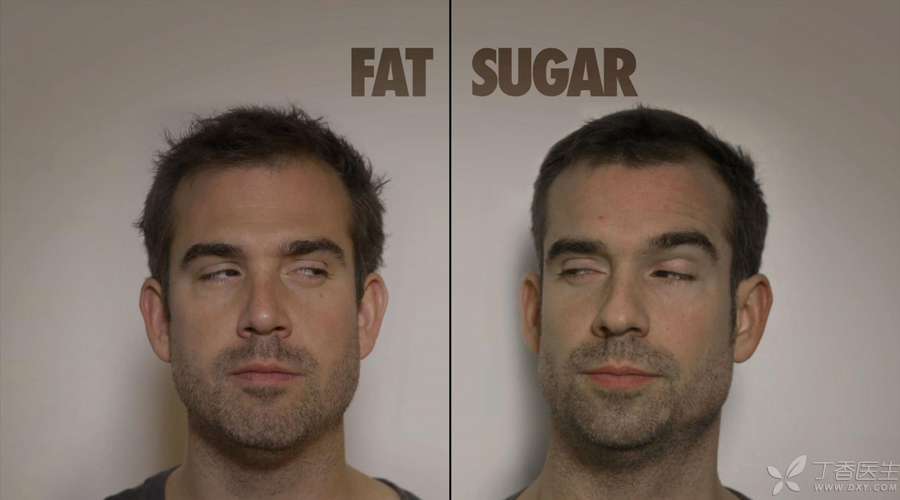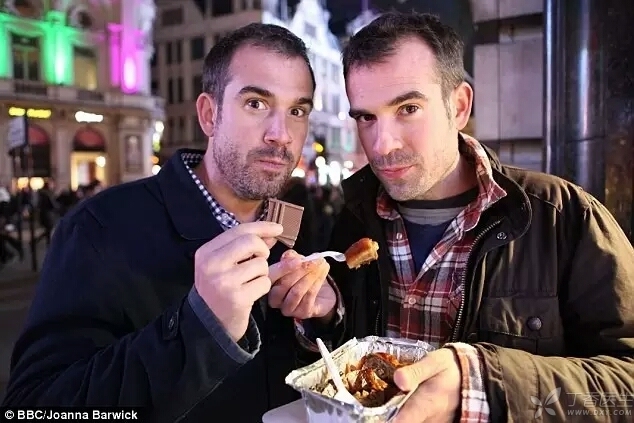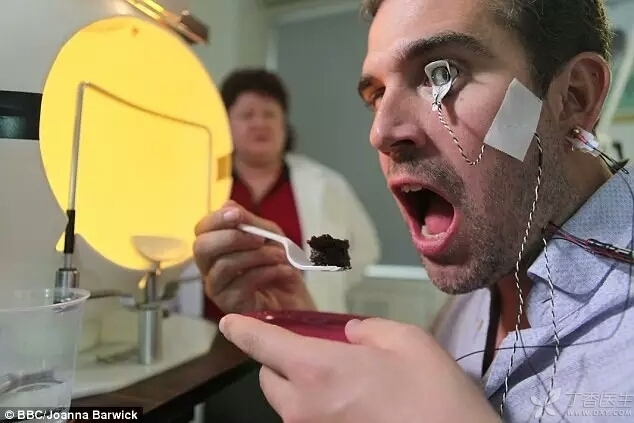
In the past two days, an article called < > has become popular among friends, claiming to have subverted the global understanding of obesity.
First of all, I have to feel sorry for twins all over the world, who often have to make sacrifices for scientific research. However, real scientific research experiments require a large enough sample size to reach certain conclusions. However, the sample size of the documentary in this article is only 2.
The following is the time for Dr. Clove to refute the rumor, saying that there are what issues behind this article.
Question 1: One person eats sugar and one person eats fat? It’s not that simple

The content of the experiment seems very simple. Nutritionists have drawn up a strict [experimental diet] for the two brothers:
Chris only eat sugar, which is true: mainly bread, doughnuts, spaghetti, potatoes, rice, vegetables and fruits, even cola and white sugar. Sugar is extremely high, protein is low, and only a small amount of fat is contained.
Zander only eats fat, which is not accurate: mainly cheese, meat, steak, chicken with skin, ham and egg yolk, no fruits, only a few vegetables. You will find that the fat is too high and the protein is also too high, and even the protein may exceed the fat.
After one month of this [extreme diet], various indexes of the body will be tested through instruments or simulation tests, and changes in body weight, body fat ratio, cholesterol, insulin, blood sugar, etc. will be recorded.
However, the design and results of these tests are also problematic.
Question 2: Mental tests do not show that eating more sugar is smart.

Two weeks after the experiment, the effects of two extreme diets on the brain were first tested: two people were allowed to work on the stock exchange for one day.
- Chris, who eats sugar, has a strong memory and quick response. He remembers brand-new abbreviations, codes and trading languages. He did a good job and won more than 800 US dollars. Zander, who eats fat, feels that he is not in good condition. His memory, reaction and calculation abilities are weakening and won 300 US dollars.
The conclusion thus drawn is that sugar eaters are better than fat eaters.
Securities trading is a kind of game activity, which cannot be objectively used as a test of intelligence or brain function. It takes luck to win more and win less, but it happens that people who eat sugar win more.
Under normal circumstances, our brain can only rely on sugar to supply energy. Eating only fat, that is, low-sugar and sugar-deficient diet, obviously the brain will perform poorly. However, this does not mean that eating sugar only is better and eating more sugar is smarter.
If you eat a high-fat and low-sugar diet for 4 or 6 weeks, the feeling of insufficient energy supply in the brain will gradually weaken, and fat can be converted into ketone body for energy supply, but this test is not selected at that time.
It should be emphasized that don’t eat extreme foods, but ensure the necessary carbohydrates (instead of adding sugar).
Question 3: A low-sugar diet will only lead to overeating.

Three weeks later, it was a hunger test: to see whose hunger came faster and stronger. Two people were given breakfast with the same energy: Chris’s was still full of sugar and Zander’s was full of fat. After three hours, they were allowed to choose their lunch food freely (still in the required category).
- Chris, who ate sugar, was already very hungry and had been eating it all the time, eating a total of 1250 kilocalories. Zander, who ate fat and protein, was not very hungry and only ate 825 kilocalories, which quickly filled him.
The conclusion thus drawn [seems to be] that eating less sugar makes one feel fuller and more hungry.
Eating high-protein food helps slow down digestion and gastric emptying, resulting in a stronger sense of satiety, which is right.
However, it is wrong to mention in the article that [fat is converted into high protein, so it is not easy and you eat less]: fat cannot be converted into protein;
Extreme low-sugar and sugar-free diet makes it easier for people to overeat.
It should be emphasized that don’t eat extreme foods, but ensure the necessary carbohydrates (instead of adding sugar) and higher protein.
Question 4: Eating sugar does not make people stronger.
Next is the physical fitness test to see who is stronger in three weeks.
After an hour of cycling, the two were exhausted. Then, Chris was given two small pieces of sugar and Zander two small pieces of butter. The sugar and butter had exactly the same calorie value. Finally, the two men sprinted to the top of the mountain to see who was faster.

Chris, who ate sugar, quickly advanced and easily left Zander, who ate fat and protein, behind.
The conclusion thus drawn is that sugar eaters are stronger than fat eaters.
Both digestion and absorption and energy conversion take time, which is not taken into account in this test. Half an hour is not enough to completely digest and absorb butter, and of course it cannot be well converted into energy for utilization.
There is nothing wrong with supplementing glycogen before sprint anaerobic exercise, but sugar can only rapidly raise blood sugar, store glycogen and supply energy in a short period of time, which has nothing to do with the overall strength of the person.
Question 5: Fasting blood glucose itself is not a stable indicator,
Finally, one month later, the experiment was over.
Cholesterol: Neither brother has changed what, even Zander, who eats more fat. It sounds abnormal but it is normal, because the cholesterol level in the human body is not directly affected by the amount of dietary cholesterol.
Let’s look at the fasting blood glucose test of two people:
- Chris, who eats sugar, has normal blood sugar. When Zander ate fat and protein, his blood sugar rose from 5.1 mmol/L to 5.9 mmol/L, while the diagnosis of diabetes was over 6.0 mmol/L.
The conclusion thus drawn [seems to be] that those who eat more fat are going to get diabetes, while eating sugar is healthier.
The blood sugar level of people is affected by many factors, and the fasting blood sugar can fluctuate greatly every day, but the fasting blood sugar result of a certain time cannot be explained as diabetes at all.
The insulin production ability and sensitivity of the two men have changed to some extent, but similarly, the experimental time is too short to explain the problem of what.
Question 6: The key to getting lighter may be to eat less.
The final weight change result is: both of them have lost weight!
This is also what everyone thinks is amazing: eating sugar alone or eating meat and fat alone does not cause obesity.
- Chris, who ate sugar, lost 1 kg of weight, of which 0.5 kg was fat and 0.5 kg was muscle. Zander, who ate fat and protein, lost 3.5 kg of weight, of which 1.5 kg was fat and 2 kg was muscle.
The conclusion thus drawn [seems to be] that if you eat junk food for a month without restraint, you will also lose weight! Although you lose less sugar, you lose more weight by eating fat because you consume more muscle, which is even worse.
When extreme diet excludes a whole category, the foods you can choose are actually very limited, which will only lead you to eat less and your energy will not exceed the standard.
The whole experiment claimed that [eat as much as you want] did not give the number of calories that the two people eat every day. As long as the two doctors who study medicine pay a little attention, they can completely achieve the energy level not exceeding the standard.
It is a normal physiological phenomenon that a person’s weight fluctuates up and down by 2kg in a short period of time, which does not mean that he is fat or thin.
The body composition analyzer used in the test is an inaccurate measuring instrument, and the change data of fat or muscle weight obtained are not completely reliable.
Question 7: There is an interest relationship between the video and the article publisher,
The content of this online article comes from the documentary < > (translated as: sugar and lipid war) shot by the British Broadcasting Corporation (BBC), which was actually broadcast in 2014, not [not long ago] as mentioned in the article.
Is the documentary with doctors and scientists credible?
This kind of TV program is with [preset results]. In order to finally show this result, it is planned and filmed bit by bit: what you see is what the media wants you to see;
It seems to be a [control] experiment, but from the beginning, it did not rule out the differences in the physical conditions of twins, such as living habits, endocrine conditions and other factors, which are not rigorous. Not to mention the loopholes analyzed above;
When the documentary was accompanied by Chinese characters behind the scenes, it began to spread on the domestic network: the accompanying words were exaggerated, such as [sugar eaters are smarter] [sugar eaters are stronger than meat eaters], etc. There was no such conclusion in BBC documentaries;
If you pay attention to the source of this online article, you will find that it is actually a sugary sports drink manufacturer. Obviously, this is a soft marketing article.
As for weight loss, fitness and health, I hope everyone will remember one sentence:
Do more exercise, don’t try extreme diet, sugar, fat, protein, one cannot be less.
